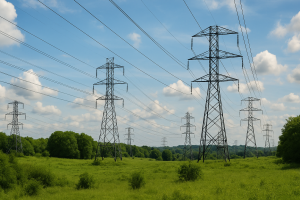Jakarta — Governments at the International Maritime Organization (IMO) have voted to delay by one year the adoption of the world’s first global carbon pricing system for international shipping, the IMO said in a statement on Saturday, October 18. The decision to delay came after a week of contentious negotiations marked by geopolitical pressure and sharp divides between oil-producing states and climate-vulnerable nations.
The Extraordinary Session of the Marine Environment Protection Committee (MEPC E.2), held in London last week, was expected to confirm the Net-Zero Framework (NZF) — a mechanism requiring ships to pay fees for non-compliance with carbon-intensity targets, potentially generating up to USD 15 billion per year by 2030. Instead, delegates voted 57 in favour of delay, 49 against, and 21 abstaining, pushing adoption to next year.
The postponement followed what many described as “delay tactics and procedural sabotage” by the United States, Saudi Arabia, and Russia, supported by other petrostates. The motion to delay was introduced by Singapore and called to a vote by Saudi Arabia. Several developing-country delegates said they faced “unprecedented” diplomatic pressure and even threats of tariffs and sanctions from Washington if they backed the framework.
Voices of disappointment
Climate-vulnerable nations and civil-society observers denounced the outcome as a betrayal of urgency.
“We regret that IMO members followed Singapore’s initial proposal to delay the adoption of the framework by 12 months, which Saudi Arabia called to a vote,” said Hon. Ralph Regenvanu, Vanuatu’s Minister for Climate Change, to the media on Friday, October 17.
“This is unacceptable given the urgency we face in light of accelerating climate change. The IMO’s failure to adopt the framework this week marks a failure of this United Nations agency to act decisively on climate change.”
Regenvanu warned that the delay makes “the road to Bélem and beyond more difficult”, referring to upcoming global climate talks (COP30), but vowed that Pacific nations would continue to “fight for our people and the planet.”
Alisa Kreynes, Director for Ports & Shipping at C40 Cities, called the stalemate “a missed opportunity to accelerate a just and equitable transition in global shipping.” She added that “Small Island States and the Global South will continue to pay the biggest price for this inaction. Cities are advancing equitable port decarbonisation and pioneering partnerships beyond their traditional powers — even as multilateral negotiations stall.”
Civil-society: “A failure of courage”
Reactions from environmental organisations were equally critical. Emma Fenton, Senior Diplomacy Director at Opportunity Green, said the decision represents “a devastating indictment of Member States’ lack of courage.”
“Too many governments chose political compromise over climate justice, abandoning the countries bearing the brunt of the climate crisis,” she said.
Teresa Bui of Pacific Environment described the outcome as “frustrating and a betrayal of the world’s most vulnerable nations,” urging member states to adopt the framework “as soon as possible.”
Natacha Stamatiou, IMO GHG Lead for Environmental Defense Fund, warned that the delay risks derailing the 2023 IMO Strategy: “Every delay means innovation will struggle to scale, inequities will deepen, and the transition to clean shipping will become harder and more costly.”
Anaïs Rios of Seas At Risk added that the postponement undermines the sector’s ability to meet its own decarbonisation targets: “This isn’t the United States of Shipping — no single flag should dictate the world’s climate course. The planet and the future of shipping do not have time to waste.”
What happens next
Technical discussions on the design and implementation of the Net-Zero Framework — including green-fuel incentives and revenue disbursement — will resume at the ISWG-GHG-20 meeting from 20 to 24 October.
The framework’s original entry into force, planned for March 2027, will now have to be reviewed. Observers fear that further political pressure from major economies could push adoption even further back, threatening momentum toward aligning global shipping with the Paris Agreement’s climate goals.
As one delegate summarised privately: “Every year we lose is another year the ocean states sink a little deeper.” (nsh)
Banner photo: North Sea Gas Platform – D15-A. Gary Bembridge/Wikimedia commons















